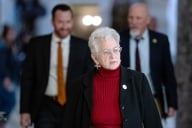You have /5 articles left.
Sign up for a free account or log in.
Few presidents of public research universities have been as clearly associated with the national accountability movement as Mark Yudof, who as head of the University of Texas System helped put in place a broad framework for public reporting about the performance of the university's 15 campuses and health centers.
Few public research universities, by contrast, have shown as much ambivalence, if not antipathy, to public accountability as the University of California. The prestigious 10-campus university system has taken a pounding in recent years for its perceived failure to be transparent about how it compensates its leaders, and it has been one of the few institutions to openly decline to participate in the Voluntary System of Accountability being developed by two major associations of public colleges and universities.
When Yudof was appointed as president of the California system last spring, something had to give. At a Board of Regents meeting Sunday, Yudof, on behalf of the UC president's office, presented the draft of an accountability framework in which the university would make public a broad range of data and other information about the performance of the system and its campuses.
Although the proposed accountability document contains data on dozens of indicators of student success, faculty performance, finances, and research output, among other topics, there is little that is revolutionary or even particularly distinctive about the report itself, Yudof said in an interview Sunday. The University of California has been "significantly behind the curve in doing this stuff," he acknowledged, and the important thing is that the university is catching up to its peers.
Yudof rebuffs the suggestion that the university has been averse to accountability, though. Virtually all of the information contained in the proposed accountability framework has been in the public domain already, and UC officials have been working for about two years -- long before Yudof arrived -- on a document to pull the necessary information together into a coherent and clearly designed document.
"I made my position clear before I came, but everyone was ready to take this path," Yudof said. "The regents have been eager for it, the staff has been working on it, and the faculty leadership and Academic Senate were fine with it. I really didn't get any pushback."
The major category of information that is not in California's draft accountability framework -- and that remains an impediment to the university's participation in the national groups' Voluntary System of Accountability -- is in the realm of measuring student learning outcomes. In opting not to participate in the national accountability system last year, the University of California's faculty specifically cited the voluntary framework's requirement that participating campuses use one of three national tests of student learning. That requirement “usurps the role of campus and departmental faculty in assessing student learning,” the university said at the time.
The University of Texas used one of the three measures, the Collegiate Learning Assessment, in its accountability system, and Yudof said he is comfortable with the test. But "a lot of angst" remains at California about "the assessment part of this" and the decision to move ahead with a UC accountability framework without a student learning component is "a nod to the culture" at the university.
Two committees of the UC system are examining "all types of tests and processes" the university might use to assess its performance on student learning, Yudof said. "Maybe there is something better out there."
He said he is hopeful that that review will allow the university to "move forward" on an acceptable method of measuring student learning, and that the university will eventually participate in the Voluntary System of Accountability. "I'd like us to do that."









